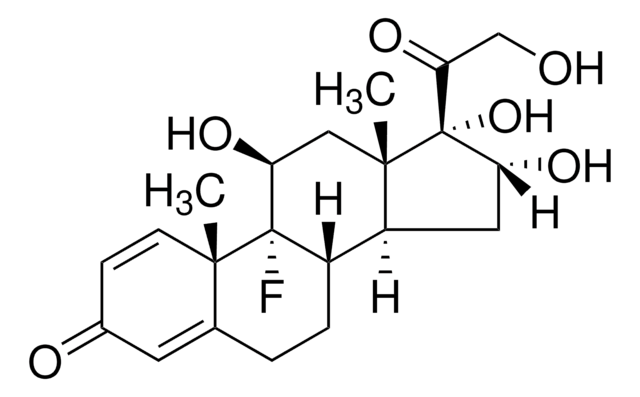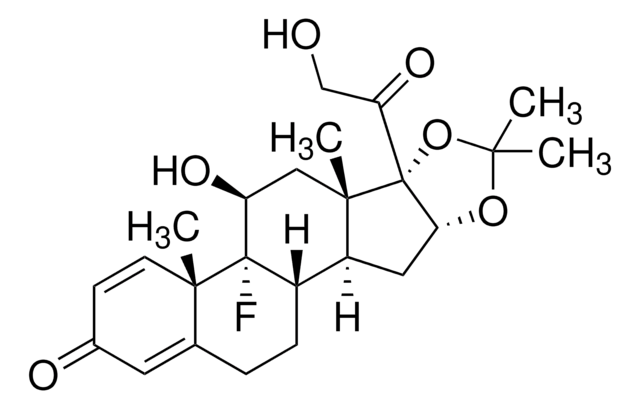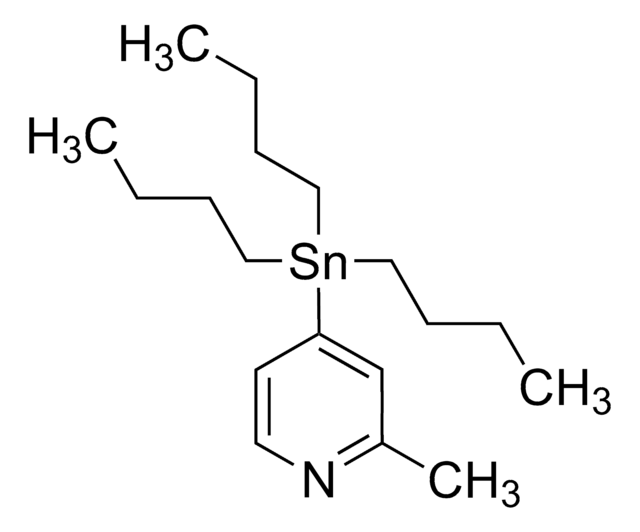T1899990
Triamcinolone
European Pharmacopoeia (EP) Reference Standard
Synonym(s):
9α-Fluoro-11β,16α,17,21-tetrahydroxy-1,4-pregnadiene-3,20-dione, 9α-Fluoro-11β,16α,17,21-tetrahydroxypregna-1,4-diene-3,20-dione, Fluoxyprednisolone
About This Item
Recommended Products
grade
pharmaceutical primary standard
API family
triamcinolone
manufacturer/tradename
EDQM
mp
262-263 °C (lit.)
application(s)
pharmaceutical (small molecule)
format
neat
storage temp.
2-8°C
SMILES string
[H][C@@]12C[C@@H](O)[C@](O)(C(=O)CO)[C@@]1(C)C[C@H](O)[C@@]3(F)[C@@]2([H])CCC4=CC(=O)C=C[C@]34C
InChI
1S/C21H27FO6/c1-18-6-5-12(24)7-11(18)3-4-13-14-8-15(25)21(28,17(27)10-23)19(14,2)9-16(26)20(13,18)22/h5-7,13-16,23,25-26,28H,3-4,8-10H2,1-2H3/t13-,14-,15+,16-,18-,19-,20-,21-/m0/s1
InChI key
GFNANZIMVAIWHM-OBYCQNJPSA-N
Gene Information
human ... NR3C1(2908)
Looking for similar products? Visit Product Comparison Guide
General description
Application
Biochem/physiol Actions
Packaging
Other Notes
Signal Word
Warning
Hazard Statements
Precautionary Statements
Hazard Classifications
Carc. 2
Storage Class Code
11 - Combustible Solids
WGK
WGK 3
Flash Point(F)
Not applicable
Flash Point(C)
Not applicable
Choose from one of the most recent versions:
Certificates of Analysis (COA)
Sorry, we don't have COAs for this product available online at this time.
If you need assistance, please contact Customer Support.
Already Own This Product?
Find documentation for the products that you have recently purchased in the Document Library.
Our team of scientists has experience in all areas of research including Life Science, Material Science, Chemical Synthesis, Chromatography, Analytical and many others.
Contact Technical Service






